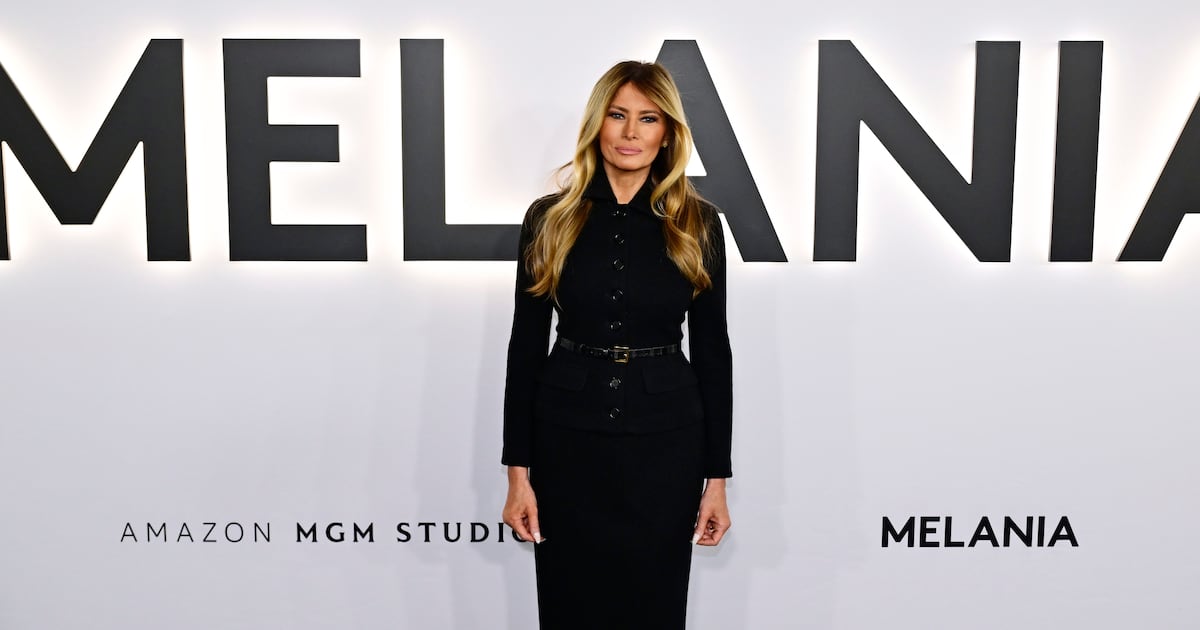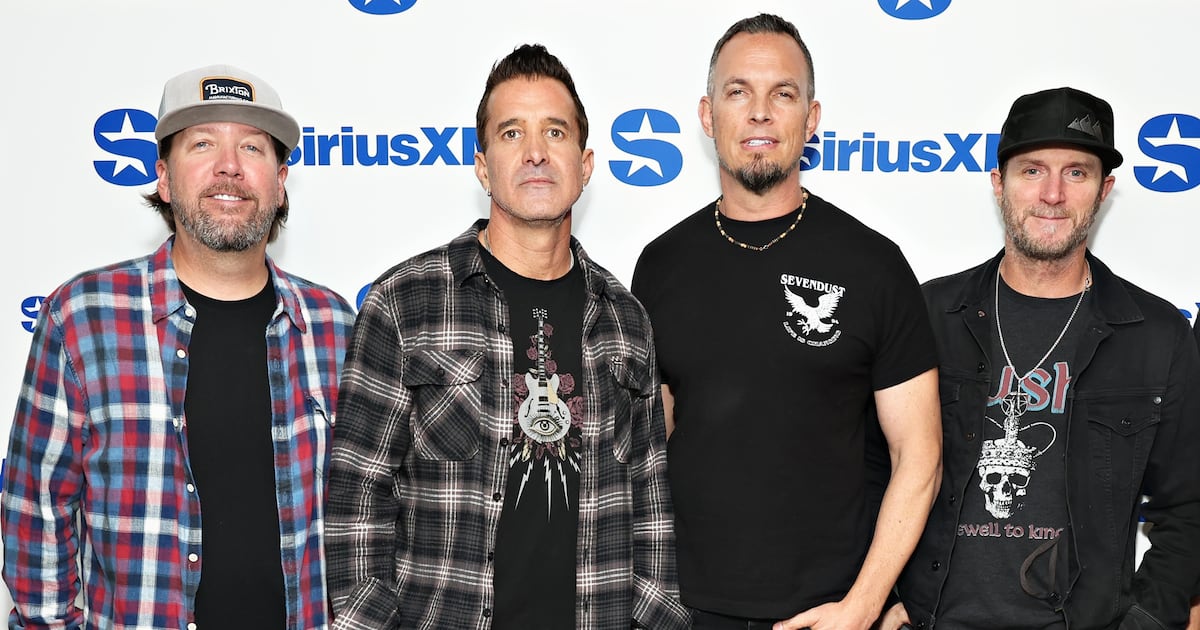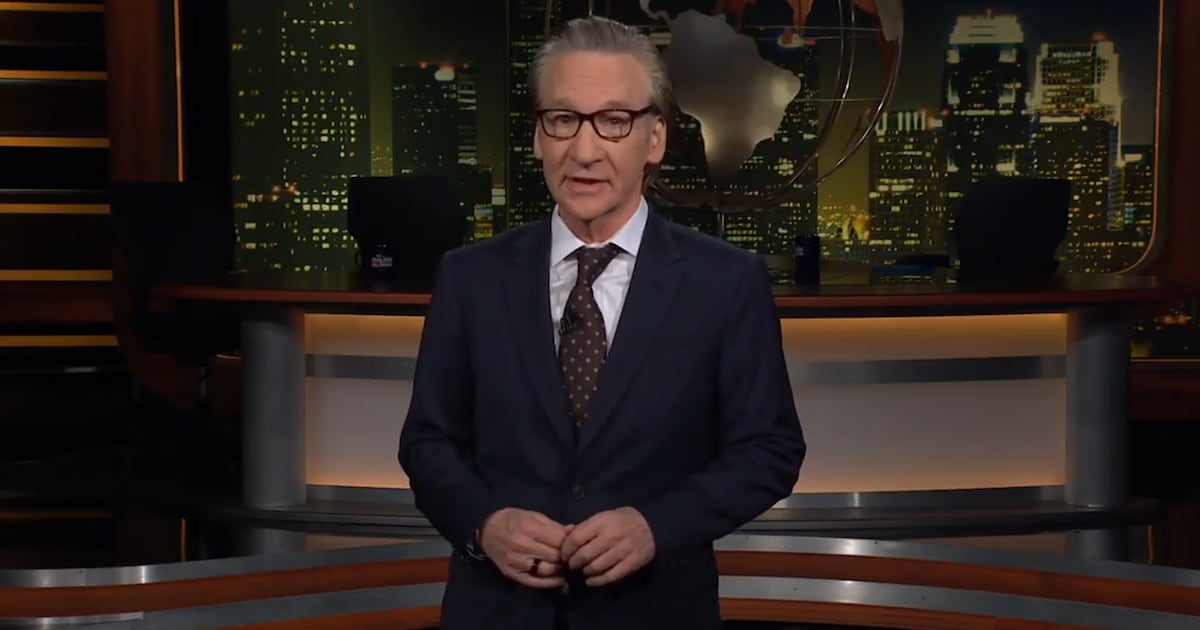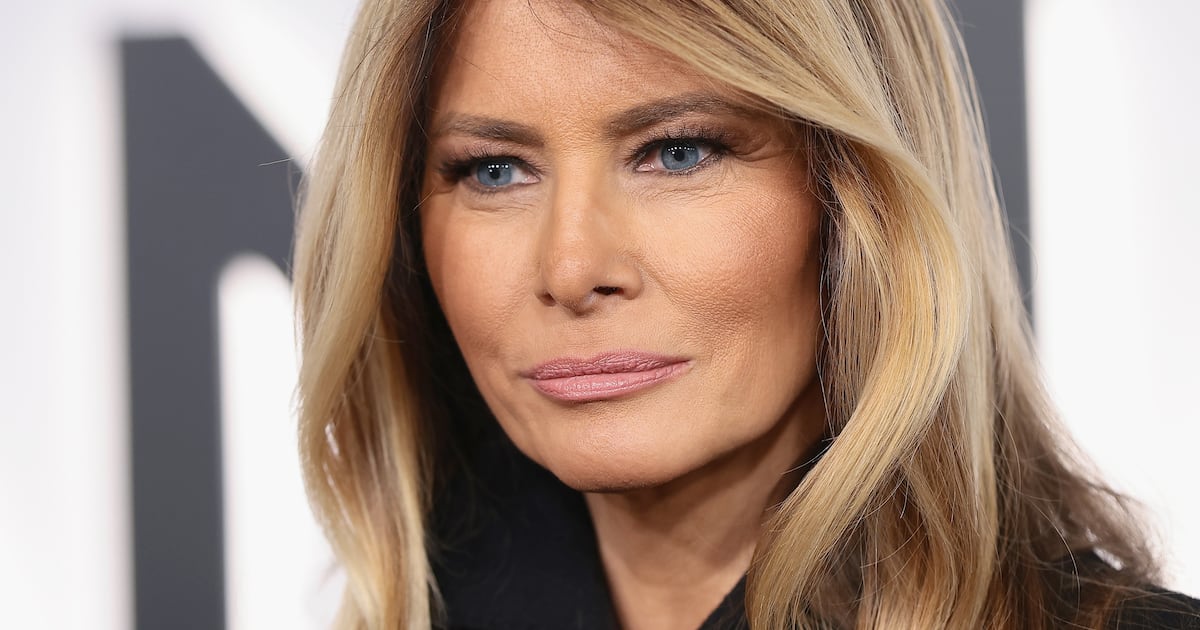Patton Oswalt begins his latest stand-up special (Black Coffee and Ice Water, streaming on Audible Nov. 20) by reading a fake disclaimer about how he’s gone full MAGA in an attempt to avoid the authoritarian hand of Donald Trump. It’s a funny bit that also underscores the comedian’s very real fears about being an outspokenly anti-fascist voice in 2025 America.
In his third appearance on The Last Laugh podcast, Oswalt talks about the freedom of putting together an audio-only special, which includes jokes about his teenage daughter and celebrating 30 years on Prozac. He also shares his visceral reaction to Jimmy Kimmel’s suspension, Donald Trump’s “mediocrity,” the MAGA-friendly comedians who happily took Saudi Arabia’s money, and what keeps him performing stand-up nearly 40 years into his career.
After putting out his past several stand-up hours on Netflix, Oswalt says he was intrigued by the offer from Audible to make an audio-only special precisely because he wouldn’t have to worry about things like wardrobe and lighting.
“I just loved the idea of getting to go old school again,” he explains. “And then I loved it even more when I was 10 minutes into recording the set at the Minetta Lane Theatre and realized, oh, I’m not on camera right now. This is just me talking and the audience responding. And it’s very real and it’s very immediate and it was so immediately freeing. I felt fantastic.”
There is a looseness and freedom that comes through in Black Coffee and Ice Water, which finds Oswalt in a somewhat less polished mode than some of his shinier work. It’s a vibe that fits this cultural moment, where many comedians are struggling to nail the proper tone when it comes to what Oswalt readily calls America’s “authoritarian government.”
His only real sense of hope in these dark times is that Trump and his cohort seem to have no “attention span.”
“Whatever horrible thing happens will usually happen for a week, and then they’ll move on to whatever the next horrible thing is they want to do,” Oswalt says, “Our only advantage is hopefully we can out-create and out pivot them because they seem to have no object permanence.”
Below is an edited excerpt from our conversation. You can listen to the whole thing by following The Last Laugh on Apple Podcasts, Spotify, or wherever you get your podcasts, and be the first to hear new episodes when they are released every Wednesday.
I was really struck by this video that you posted from the airport right after the Jimmy Kimmel suspension. It felt to me that you felt compelled to say something right away. Can you talk about what you were thinking in that moment?
Well, that was one of those moments when what was being done was so blatant and so petty, and it was just such an absolute misuse of power. And so I wanted to get something out there. Not that I have any kind of massive platform or sway on culture, but I could already fast forward to the way that the pro-Trump people were going to start trying to rationalize this. There’s now a scary legion of people out there whose job is to make the abnormal seem normal and reasonable. And so I just wanted to blurt out what was a very inarticulate, but it is from the heart—that this this administration is doing something that is so aggressively anti-American. And all of you people that keep saying, you know, Trump is bringing America back—whatever he’s bringing back, it’s not America. He’s birthing something really, really evil. I hate to use the word evil because it sounds so absolute.
But I think, from the beginning of time, there’s this overall mediocrity that wants a foothold in life. And it hates excellence. And it hates people that actually craft their job and care about their job. They just want loud, sloppy spectacle. And it’ll ebb and flow and, and it’ll flare up, and then it’ll die down. And right now, we were looking at a massive flare up. And we have got to be better about calling that stuff out when it’s happening. It’s very tempting to think, there’s this big, loud, frightening guy and if you’re just nice to him and do what he says, he’ll make your life comfortable. Now, luckily for us, in this case, Trump doesn’t even know how to make his worshipers’ lives comfortable. This does feel like a bad virus, a bad flu, some kind of bacterial infection that we have just got to ride out. But eventually, it will kill the host or get close to killing the host. But that was one of those big signs of like, hey, we’re bleeding out of our eyeballs, we should get to a hospital right now. Something’s wrong.
It’s been fascinating, in terms of political comedy, who the Trump administration has targeted and who they’ve stepped back and let get away with it. Thinking about Paramount, which has Colbert on the one hand, who got canceled, and South Park on the other, which got another $1.5 billion to make more episodes, even though they are arguably going against Trump harder than anyone else. And Trump hasn’t said a word about that. How do you explain that?
Nothing shuts Trump up like money. He can argue that Stephen Colbert isn’t getting the ratings and isn’t making the money, even though the show is brilliant. But it’s not that Stephen Colbert is slipping in the ratings, it’s that the whole infrastructure of late-night television is slipping.
Yeah, he’s number one in a system that has come down.
And South Park, not only does it make insane amount of some money, it gets insane ratings. And Trump can only be so angry at that, because what Trump ultimately will respect, even if it doesn’t respect him, is something where the numbers are through the roof, and the money is through the roof. He can’t look at South Park and see how brilliant it is, and he can’t look at something like John Oliver and see how equally brilliant it is. All he can think of in terms of, look at this guy’s numbers, look at their numbers, and that’s the only way he sees the world. So something that is as massive and as undeniable as South Park, both in quality, which people like you and I can see, but then in numbers and money, which Trump can see, he just falls silent. If Colbert was making South Park money and getting South Park eyes on him, Trump wouldn’t know what to do.

Do you think that satire, like South Park or the late-night shows, is effective in changing people’s perception of the Trump administration or people in power?
That’s hard to say, only because the only effective satire right now is satire that is as insane as the time we are living in. We are living such hallucinatory times. In order to capture it, you need to create something that feels hallucinatory, and thus it doesn’t quite land on you the way it should because it is so crazy, you can almost discount it a little bit. Now, obviously there are people that have seen South Park or listen to John Oliver or Colbert that maybe were like, oh, I didn’t really think of it in those terms. But you also have to remember when people say that Trump followers and MAGA people are lost, they are not lost. This is the only time in their lives they’ve ever felt found and seen and understood. And people will hang onto that until the bitter end, they will never, ever let go of that. Even if you show them on a chart how this guy is robbing you, they’re like, “He was nice to me, and no one’s ever been nice to me. No one’s ever accepted my horribleness. I’ve found people that are like me, and I’ve never had this, and I’m never letting this go.” They’ll die with him if they have to. That’s why the Democrats drive me up a wall with this whole reaching across the aisle thing. Yes, you should try to reach across and work with them, but also you need to acknowledge there are some people on both sides—and I think way more on their side—that are just permanently unreachable. And that, by the way, is another thing that makes this country great: that you can have a chunk of people that are unreachable and the country still functions.
It does seem from the outside, that there is a big divide in the comedy world right now over politics, especially since the 2024 election. Is that something that you feel?
I think a lot of people that are outside of comedy don’t understand the way that comedians actually relate to one another. One of the things that makes comedians good is hanging out with people that call you on your s--t and bust your balls and point out stupid s--t you’re doing. I’ve done a lot of lame stuff as a comedian, a lot of stuff that hasn’t aged well, a lot of stuff that was ill-advised. That’s part of being an artist. And you have people around you that go, “that was stupid.” But there seems to be a certain section of comedians right now that do not want to be called out on anything, or can’t admit that, “yeah, I f---ed up, now I know better.” There’s this weird culture now of “no apologies ever.” I’ve never understood that way of living. If you get to the end of your life and you go, “I got no regrets,” then you did something wrong. But there’s a lot mediocrities that saw there’s a shortcut to success if you just appeal to this group. And they only expect you to say five or six different things. And if you can say those five or six different variations of a joke to them, they’ll fill arenas for you. So that’s very tempting.
I mean, look, when I was a young comedian trying to break through, that would’ve been very, very tempting to me. And a lot of these guys are actually very talented performers, and could develop into genuinely amazing comedians. And I think some of them will come out on the other side of this and go, “oh, now I know better.” And they’ll grow from it. I think other people won’t. The same thing happened with alt-comedy. There was an a hack alt-comedy playbook, and there were a lot of alt-comedy hot house flowers that would thrive in these alt-comedy rooms that were very, very popular for a year or so. But when it came time to actually get out on the road in front of an audience that you’ve got to win over every single night, some of them couldn’t do it. And I think the same thing’s going to happen with a lot of these flirting with the alt-right, flirting with fascism comedians that you see out there. And there will be one of them—I don’t know who it’ll be—but one of them will do an amazing show, either a one-person show or a Netflix special, where they will really actually embrace, “here is how bad it got for me, here is what I truly believe, here were the rewards I was getting, and then here’s how I came out the other side of that.” That’s going to be a very human recovery story that one of these presently alt-right grifter comedians is going to tell. And it will actually, I think, open up a lot of people’s eyes in the next generation. I don’t know who it’s going to be, but I have high hopes for a handful of people.
I think of Bill Burr as someone who has had a really interesting political evolution, which to me has made it so disappointing the way he really leaned into defending his appearance at the Riyadh Comedy Festival. First of all, I was curious if you got the invite to go over there for that, and then, what did you make of the varying reactions to it, which were a really stark example of this divide that I was alluding to?
Yeah, look, I didn’t get the invite. And like Marc Maron so eloquently said, it’s very easy to judge when you have not gotten the invite. But, without tooting my own horn, I’ve been offered similar things. I was offered a non-ID voiceover campaign for, basically, a defense contractor. This was about 10 years ago. And it was amazing money, but I just was like, this is going to blast chunks out of my soul if I take it. I don’t want that on my head. And there’s been some other speaking engagements recently that—I can say that there seems to be a lot of whitewashing attempts going on with evil regimes both overseas and here. And I know a lot of big and smaller comedians that turned down Riyadh for the same reason. They’re just like, how in the f--- can you say yes to this? This is the easiest choice you could possibly make. But yeah, I really stand with people like Marc Maron and David Cross and Atsuko Okatsuka and people like that, who said it so eloquently. So that whole incident was so ugly, because there were people that I love that went over there.

Yeah. I think the thing that was tough was that it was so clear that the reason for most of these people, or all these people, was money, because we knew that they were getting these huge sums. And then they came back and said, actually, it was this great thing, we were bridging the divide between cultures and all this bulls--t that didn’t really pass the smell test.
I just get so sad when I think about that. I think I speak for a lot of people when I’m just like, you wanted the money, just take the money and shut the f--- up. Just take the money and try to do something good with it.
So, I realized leading up to this interview that you are approaching 40 years of stand-up comedy. What do you feel like keeps you dedicated to stand-up as an art form after so many years?
It’s so much. I never don’t have fun doing it. Even the nights when the set isn’t great, or the travel is exhausting, something happens up there. I don’t know what it is. And I’ll never not be enchanted by it, and I’ll never not be delighted by the way things can turn on stage. It’s the way that people that just keep writing or the people that keep acting, even if they’re doing like a small local theater for some people, and I think I’m one of them. Something happens up on that stage in that moment. And it’s only going to happen at that moment in front of those people. You are getting access to something that is really special and really rare that a lot of people don’t get to get access to. So the fact that you get that at the end of your day makes the rest of your life just gravy.
Listen to the episode now and follow The Last Laugh on Apple Podcasts, Spotify, or wherever you get your podcasts to be the first to hear new episodes when they are released every Wednesday.






